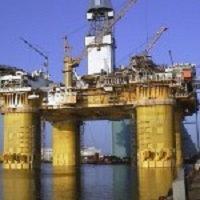East Africa Oil Boom
Posted on : Wednesday , 27th August 2014

East Africa is the new oil and gas frontier. Recent discoveries of commercially viable deposits in the last few years in Tanzania, Kenya, Mozambique, and Uganda among others have sparked excitement and equal concern in the region. The potential of oil and gas exports have currently prompted an economic boom that could last for the next few decades, or at least until the tap runs dry. But the talk of prosperity is softened by the typical concerns over the resource curse and the Dutch disease that can easily follow the newfound fortune.
The resource curse is when the discovery and the exploitation of natural resources results in the corrosion of governance, rise of authoritarianism and decline in living standards from focusing solely on the development of the natural resources themselves. The Dutch disease is when natural resource exports results in an appreciation of the currency, consequently weakening other exports and limiting the ability of the country to diversify its exports. The new found resources make several East African states vulnerable to both problems. But it may be the infrastructure deficit that is East Africa’s greatest risk going forward.
Speaking at the 38th Annual International Conference and Exhibition of Society of Petroleum Engineers held recently in Lagos, the Chief Operating Officer of GE Oil and Gas for West Africa, Mr. Uzo Nwagwu, said governments should encourage the development of infrastructure on the continent. Nwagwu said that a provision of infrastructure projects on the continent should be given immediate priority and made available to private investors to invest in. Absent private investment, capital flows for infrastructure and the speed in project completion will both continue to slow with damaging effects.
After Rio Tinto agreed in July to sell its Mozambique coal assets – initially acquired for $3.7 billion in 2011 – to an Indian investment group for US$50 million, representatives for the company and representatives for other companies in related sectors (e.g. oil and gas), revamped their efforts to push the Mozambican government to boost infrastructure investment and improve project management in achieving quicker completion. The good intentions are there, argues one local investor, but the cash will take time along with the import of skills.
Global annual expenditures on natural gas infrastructure now range from US$250 to US$300 billion per year, according to recent report by General Electric. Of that total, nearly 25 percent of the industry spending is devoted to expanding gas transportation networks, including pipeline, storage, and LNG systems. Over the next five years, gas transportation network development is likely to account for nearly 30 percent of annual capital spending of the US$400 billion global gas industry. Some experts estimate that Africa’s percentage of that growth may sadly only be slightly higher at 5-7 percent than its percentage of the world gas demand at 4 percent.
The noticeably unequal distribution of investment in infrastructure across Africa, particularly in East Africa, further complicates the situation. A greater participation amongst the countries, however, could spell the collective charge necessary to implement large infrastructure projects. Consider the situations of South Sudan and Uganda. South Sudan remains stuck in constant row with Sudan over the fees for using Sudan’s pipelines for transport. Uganda is constantly mired in controversy over its concession with China over a port on Lake Victoria. These examples are a few of the one-off projects and agreements that tend to fall short in Africa for predictable and unpredictable reasons associated with the local government.
The Uganda-Kenya joint pipeline project has comparably seen greater success because the presence of multiple government parties reduces the internal squabbles that undercut one-country projects. A boost in cross-border infrastructure development could also have additional benefits beyond boardroom decency. Shared financial resources and shared expertise would lower the cost burden on involved countries. Governance generally improves as rents and special favours are hard to capture when multiple countries are associated with a project.
Beyond the issues of cost and governance, location of deposits simply require greater regional cooperation. Uganda and South Sudan are landlocked and can only realize their dreams through the assistance of the aforementioned Sudan and Kenya among other countries. South Sudan is already considering possible networks through Ethiopia and Kenya to avoid further conflict with Sudan. Regardless the chosen partner countries, the local solutions (and policies) will automatically have to become regional to ensure success.
The challenges are big but not insurmountable. East Africa benefits from its later arrival to the resource game by having the West and Central African stories as a reading list of do’s and don’ts. Accusations of corruption and bribery prevail and signify that more must be done to improve transparency.
Source : www.ventures-africa.com


